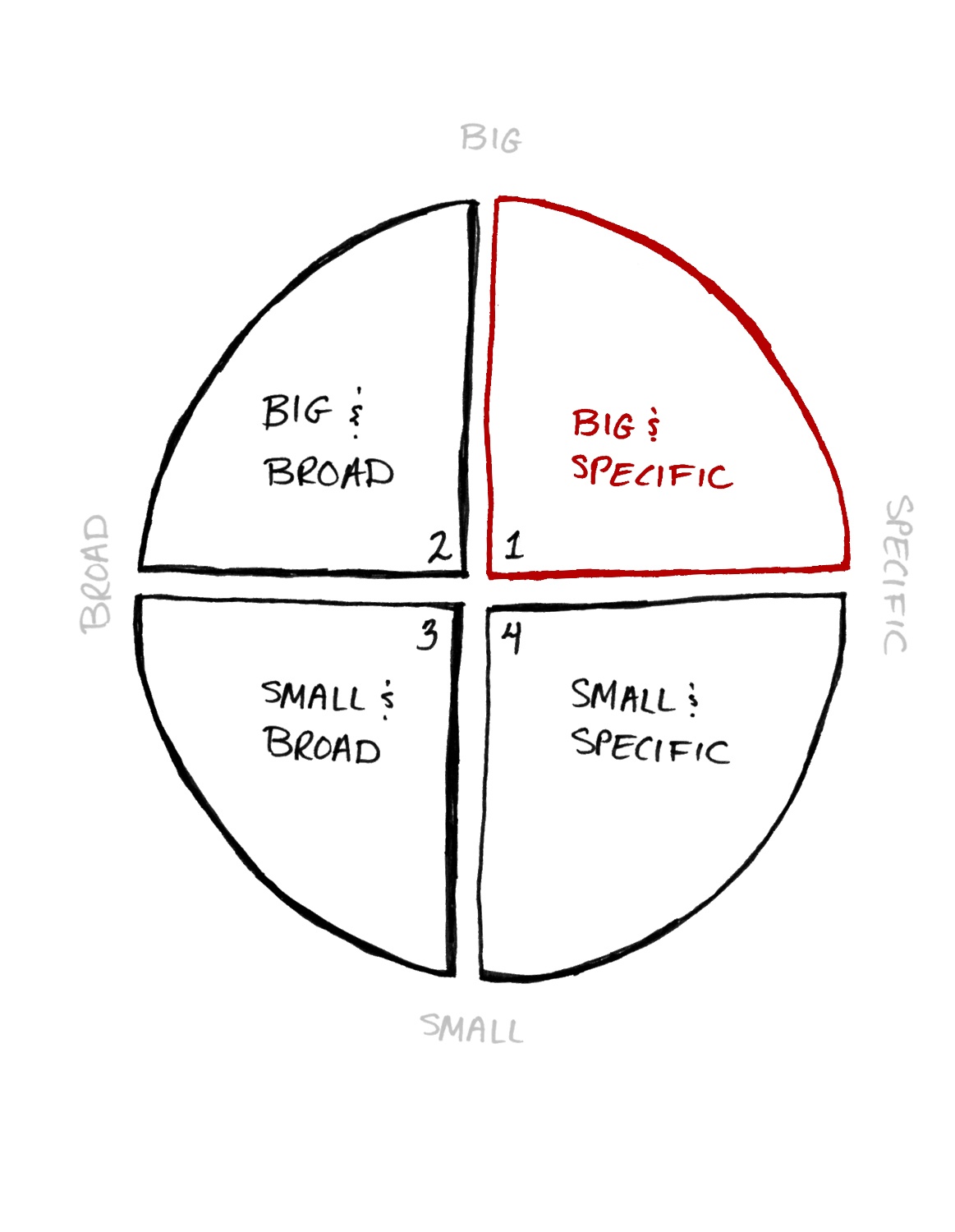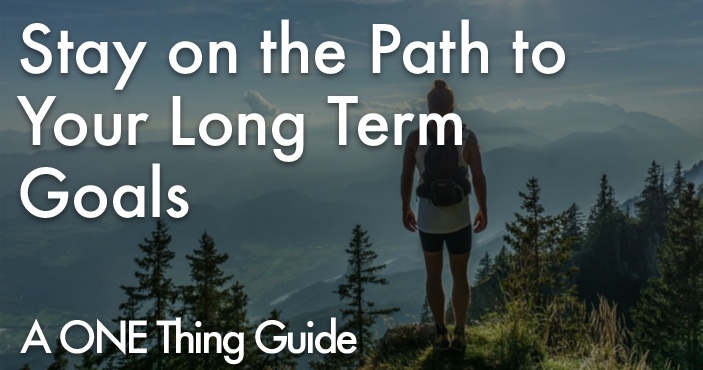The Importance of Asking Great Questions
“I never learn anything talking. I only learn things when I ask questions.” – Lou Holtz
As we get older, we seem to value the importance of questions less and less. Throughout our years of school, teachers stand in the front of their classrooms and encourage students to ask questions. But as time passes between our childhood and our present day selves, we ask fewer and fewer questions. According to psychologist Dr. Todd Kashdan , “A child asks 300 questions a day. By middle school, the number is down to practically none. By adulthood, our disposition toward questioning can range from the timid to the hostile.”
This is as backwards as it gets. The older we get, the more there is to know and the more questions we need to ask. Our lives are directly impacted by the questions we ask – or rather — fail to ask.
As we say in The ONE Thing, “The quality of any answer is directly determined by the quality of the question.” There is great power and knowledge to be gained from asking questions. In fact, it’s why we know that the posing of the Focusing Question can provide answers that lead to extraordinary results in life.“
One common trait shared between the world’s leading innovators and children is asking questions. Whether it’s a scientist who questions how to look at things in a new way, or a child asking for an explanation on how things work, both continue to learn from the questions they ask. And as a result, the knowledge base of both groups continues to expand as they are exposed to answers that help them come to deeper and more innovative questions.
If you’re looking to have a more extraordinary life, asking questions of yourself and those around you is the right way to start.
The Factors of Asking a Great Question
Like all things we do in life, there are best practices we can follow to find success. While all great questions and answers aren’t necessarily a result of following these five steps, they have proven themselves to increase your chances:
- Find the right type of question
- Create the right environment
- Let go of your assumptions
- Be open-ended
- Ask follow-up questions
1. Finding the Right Type of Question
Like we’ve already mentioned, great answers begin with great questions. In The ONE Thing, we explain that questions can generally fall under four different categories:

Each type of question has its pros and cons, but they can range from simple to revolutionary.
Small and specific questions aren’t life-changing. Think about it. On the surface, there doesn’t seem to be anything wrong with asking a question like “What can I do to add 10 clients to my database this quarter?” While adding clients to your database is a positive outcome, you’re asking how to take an extremely small step, which leads to an extremely small gain. If you’re looking for extraordinary results, you’ll need to begin with a bigger question.
A question like “What can I do to add clients to my database?” is what we consider small and broad. These questions don’t have enough weight to them to set ourselves on a high trajectory. In fact, we think of these types of questions as brainstormers. While they allow us to generate a list of ideas, they don’t produce measurable results. They might get your thought process rolling, but you’ll need a harder-hitting question than one in the small and broad category to see the best possible results.
Big and broad questions like “How can I double the size of my database?” may define the problem we want to solve, but they’re too generic to provide us with a starting point. Instead of being helpful, asking a question like this can leave us flapping in the breeze unsure of how to tackle it.
Then, there are the big and specific questions we can ask. In the context of a database, that kind of question might be “What can I do to double the size of my database in the next six months?” Here at The ONE Thing, we prefer this type of question. If you have a big goal you want to pursue, it’s the only type of question that is both visionary and measurable.
Like we say in The ONE Thing, “When you ask a great question, you’re in essence pursuing a great goal.” This specific question pinpoints a big goal (doubling the size of the database) and specifies when and how you want to reach that goal (in the next six months). And as a result, the question requires you to respond with a big and specific answer. Because it contains specific targets to aim for, there’s no wiggle room about what success will look like.
When you take the time to ask a big and specific question, the quality of your question will lead you to an answer that is a step above the rest.
2. Creating the Right Environment
Like your ONE Thing, questions can fall flat if they aren’t supported by their environment. For a question to be embraced in the spirit it was asked, it’s important to create an atmosphere where curiosity is welcome. Google is a great example of a company that has created such an environment. Every week, Google employees are welcomed and encouraged to take part in “TGIF” sessions where all employees are invited to ask their leadership tough questions. All employees are able to submit any question they want, and then everyone votes on what questions they want answered. The executives then have to answer those questions—often the most controversial—on the spot. No fancy PR lingo allowed! This practice has been hugely beneficial for Google as it creates a mood within the company where anyone can ask any question.
We too should start by letting those around us know that questions are rewarded. And then we must personally model that behavior. We can do this by setting the expectation with others and becoming more aware of what’s going on around us. When we show our own curiosity we encourage others to do the same. And when we pay attention to what’s actually happening in the world around us, we’re better able to ask smarter questions.
3. Challenge Our Assumptions
The more unfamiliar we are with something, the less we think there is to actually understand. In fact there’s psychological phenomenon called the Dunning-Kruger Effect that explains the more you know about something, the more unsure you are about what you know. The reason is because the more we learn, the more we understand that there are things we don’t know. That’s why when asking a great question, it’s important to not take anything for granted and look at each situation with fresh eyes.
When we let go of our assumptions, we become an observer of what’s going around us. The Greek philosopher Socrates is known for using this method of exploration with his students. By questioning an assumption, he encouraged his students to dive into their knowledge of a topic. In the time since Socrates, many have rethought their knowledge by using questions to define what they know. You can too.
The best breakthroughs also often happen when we least expect them. When we remove ourselves from a situation and allow ourselves to relax and not to think too hard about the issue at hand, we arrive at unexpected moments of insight. That’s why great ideas often show up when we’re in the shower and why we often remember important things right before we go to sleep.
Everyone has their own bias. There’s no shaking that. We all have a lifetime of experience that we bring to the table when approaching just about any subject, and those biases inform us as we move forward. The best thing to do about our bias is to be aware of what they are. If we know what our own tendencies are and what we believe, we can sometimes remove ourselves from our own inclinations.
4. Be Open Ended
If you’re setting the right environment and coming from a place of curiosity, you’ll want to be sure to not stop a good train of thought in its tracks by phrasing a question incorrectly. It turns out that when it comes to question formation, there is such a thing as a dumb question. That means we must be purposeful about the questions we ask. Questions that inspire are often open-ended. They should start with “why,” “how” or “what do you think about…” rather than phrased in a way where the answer is a straight “yes” or no.”
As Judith Ross describes in the Harvard Business Review, the best questions help to create clarity and encourage people to think critically. Open-ended questions allow people to reflect and see things in unpredictable ways. And most importantly, they aren’t posed with the purpose of receiving a specific answer. Instead, they are phrased to help us and those around us to discover our own solutions. Even better, because open-ended questions require us to dive deeper into ourselves to answer, they provide an added effect of enabling us to become more invested in the results.
5. Ask Follow-up Questions
While looking for insightful quotes for this article, we came across one often attributed to Voltaire saying, “Judge a man by his questions rather than his answers.” The quote is memed and plastered all over the internet. But Voltaire never said those words. A duke named Pierre-Marc Gaston de Lévis did. The reason why we know that is because we asked one question and immediately asked another. It just goes to show that the truth isn’t always the result of asking one question, but several.
Improving our lives with great questions means giving our train of thought a long track to run on. It’s easy to say enough is enough, but oftentimes a breakthrough comes when we say enough is never enough. That’s why the magic to a great question isn’t always the answers we’re given, it’s the other questions it leads us to.
The future of our personal and professional lives depends on revealing both questions and answers. There are things you know. There are things you don’t know. And then there are things you don’t know you don’t know. When we stop questioning, that means we’ve given up on finding out what we need to know that we don’t already. And that’s dangerous because the moment we stop learning is the same moment we’ve stopped growing.
Deadly Questions to Ask Yourself
If you want a question that will change the trajectory of your growth, you’ll need a deadly question. At The ONE Thing, Geoff Woods has compiled a list of questions that do just that. These deadly questions walk us through the pages of The ONE Thing and cut through to the truth. If you want to start asking yourself questions that matter but aren’t sure where to start, get a small glimpse at some of the questions Geoff is asking below.
- Where are you expecting huge success in your life? How will you have to show up in the world so you have the focus required to earn that huge success?
- Where in your life are you currently unwilling to endure the monotony of success?
- Who is the ONE person who is currently contributing to your success more than any other person?
These questions are only the start of a thought-provoking journey you can have at your fingertips by downloading the list here.
What intriguing or interesting questions have you posed, either to yourself or someone else, that has set the bar higher when it comes to leading a successful life? Sound off on our Facebook page!


